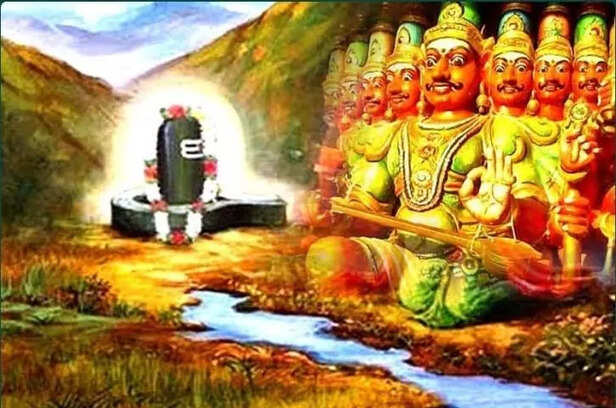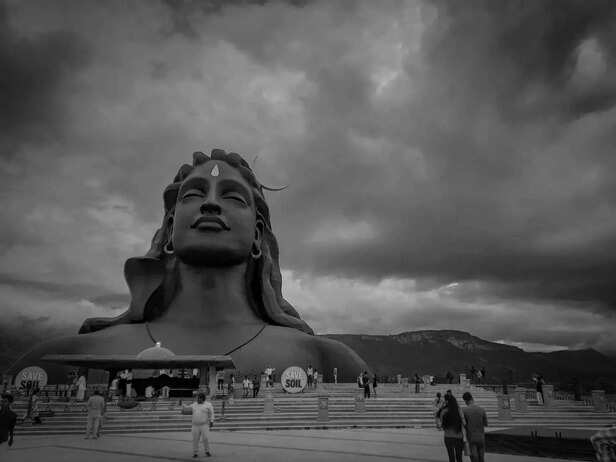The Price of Immortality: Why Asuras Were Denied Amrit
Nidhi | Mar 04, 2025, 12:28 IST
( Image credit : Times Life Bureau )
The cosmic churning of the ocean, Samudra Manthan, was a battle between Devas and Asuras for Amrit, the nectar of immortality. Yet, when the divine elixir emerged, the Asuras were deceived and denied its blessings. Was it mere trickery, or did a greater cosmic law govern their fate? This article delves into the mythological depths of why the universe withheld immortality from the Asuras, exploring the hidden truths of power, wisdom, and destiny in Hindu philosophy.
अमृतं नैव देयं अशुभेभ्यः
Amritam naiva deyaṁ ashubhebhyaḥ
The nectar of immortality shall not be given to the inauspicious.
The churning of the ocean, the Samudra Manthan, is one of the most iconic episodes of Hindu mythology. A celestial struggle between the Devas and Asuras, it was a grand pursuit for amrit, the nectar of immortality, which promised eternal life and dominion over the cosmos. Yet, when the golden urn brimming with this divine essence emerged, only the Devas were blessed with its boon, while the Asuras were tricked and deprived of it. Was it mere deceit, or was there a deeper cosmic law at play?
 The Samudra Manthan was not just a battle for power; it was a grand performance where cosmic forces played their destined roles. The ocean, vast and unyielding, held secrets unknown even to the gods. When Mount Mandara was plunged into its depths, it was not just milk that was churned—it was the very essence of existence, the hidden truths of creation and destruction. The Devas and Asuras both sought amrit, but the process itself was a test of who truly deserved it.
The Samudra Manthan was not just a battle for power; it was a grand performance where cosmic forces played their destined roles. The ocean, vast and unyielding, held secrets unknown even to the gods. When Mount Mandara was plunged into its depths, it was not just milk that was churned—it was the very essence of existence, the hidden truths of creation and destruction. The Devas and Asuras both sought amrit, but the process itself was a test of who truly deserved it.
 When Dhanvantari emerged with the pot of amrit, chaos ensued. The Asuras, blinded by their hunger for power, forgot the very patience that had brought them to this moment. Lord Vishnu, in the enchanting form of Mohini, did not steal the amrit—he merely held up a mirror. The Asuras saw in her not divinity but desire, not wisdom but temptation. Their failure was not just in being deceived, but in allowing their own greed to overrule their wisdom.
When Dhanvantari emerged with the pot of amrit, chaos ensued. The Asuras, blinded by their hunger for power, forgot the very patience that had brought them to this moment. Lord Vishnu, in the enchanting form of Mohini, did not steal the amrit—he merely held up a mirror. The Asuras saw in her not divinity but desire, not wisdom but temptation. Their failure was not just in being deceived, but in allowing their own greed to overrule their wisdom.

Immortality is not a prize but a responsibility. The Asuras, known for their strength and intellect, were also driven by unchecked ambition. To bestow eternity upon them would have been to forge an age where destruction had no end, where the wheel of karma would halt in imbalance. The universe, in its infinite wisdom, does not deny power to those who seek it—but it ensures that power aligns with purpose. The amrit was not kept from the Asuras as punishment, but as protection—for them, and for the worlds beyond.
 Was the amrit truly the greatest gift? Even the Devas, who drank it, remained bound to their struggles, their battles, their sufferings. The nectar did not grant them liberation—it extended their roles in the cosmic play. The Asuras, in being denied it, were perhaps spared a greater burden. Would they have wielded eternity wisely, or would they have been trapped in an endless cycle of conquest and downfall? Immortality, without enlightenment, is but a longer illusion.
Was the amrit truly the greatest gift? Even the Devas, who drank it, remained bound to their struggles, their battles, their sufferings. The nectar did not grant them liberation—it extended their roles in the cosmic play. The Asuras, in being denied it, were perhaps spared a greater burden. Would they have wielded eternity wisely, or would they have been trapped in an endless cycle of conquest and downfall? Immortality, without enlightenment, is but a longer illusion.

The tale of the Samudra Manthan is not merely about the past—it is a question that echoes through eternity. Who is truly worthy of immortality? Is it the one who seeks it most fervently, or the one who understands its true cost? The Asuras’ denial of amrit was not about good versus evil, but about readiness versus recklessness. Even today, the universe whispers the same lesson: power without wisdom is a storm without a shore, and eternity without purpose is a void without light.The Asuras were denied amrit, but perhaps they were given something greater—freedom from an eternal burden. In the cosmic order, every denial is a hidden boon, every loss a disguised gift. The true nectar is not that which prolongs life, but that which grants understanding. And so, the churning of the ocean continues, not in the depths of Kshirsagar, but in the hearts of those who seek to uncover the true meaning of existence.
Amritam naiva deyaṁ ashubhebhyaḥ
The nectar of immortality shall not be given to the inauspicious.
The churning of the ocean, the Samudra Manthan, is one of the most iconic episodes of Hindu mythology. A celestial struggle between the Devas and Asuras, it was a grand pursuit for amrit, the nectar of immortality, which promised eternal life and dominion over the cosmos. Yet, when the golden urn brimming with this divine essence emerged, only the Devas were blessed with its boon, while the Asuras were tricked and deprived of it. Was it mere deceit, or was there a deeper cosmic law at play?
1. The Churning of the Ocean – The Divine Drama of Duality

Samudra Manthan
( Image credit : Times Life Bureau )
2. Mohini’s Illusion – The Mirror of Desire

Lord Vishnu
( Image credit : Times Life Bureau )
3. The Cosmic Law – Why the Universe Withheld the Nectar

Shiva and Ravana
( Image credit : Times Life Bureau )
Immortality is not a prize but a responsibility. The Asuras, known for their strength and intellect, were also driven by unchecked ambition. To bestow eternity upon them would have been to forge an age where destruction had no end, where the wheel of karma would halt in imbalance. The universe, in its infinite wisdom, does not deny power to those who seek it—but it ensures that power aligns with purpose. The amrit was not kept from the Asuras as punishment, but as protection—for them, and for the worlds beyond.
4. The Illusion of Immortality – The Hidden Truth in the Nectar

Shiva
( Image credit : Times Life Bureau )
5. The Eternal Question – Who Truly Deserves Amrit?

Lord Shiva
( Image credit : Times Life Bureau )
The tale of the Samudra Manthan is not merely about the past—it is a question that echoes through eternity. Who is truly worthy of immortality? Is it the one who seeks it most fervently, or the one who understands its true cost? The Asuras’ denial of amrit was not about good versus evil, but about readiness versus recklessness. Even today, the universe whispers the same lesson: power without wisdom is a storm without a shore, and eternity without purpose is a void without light.
